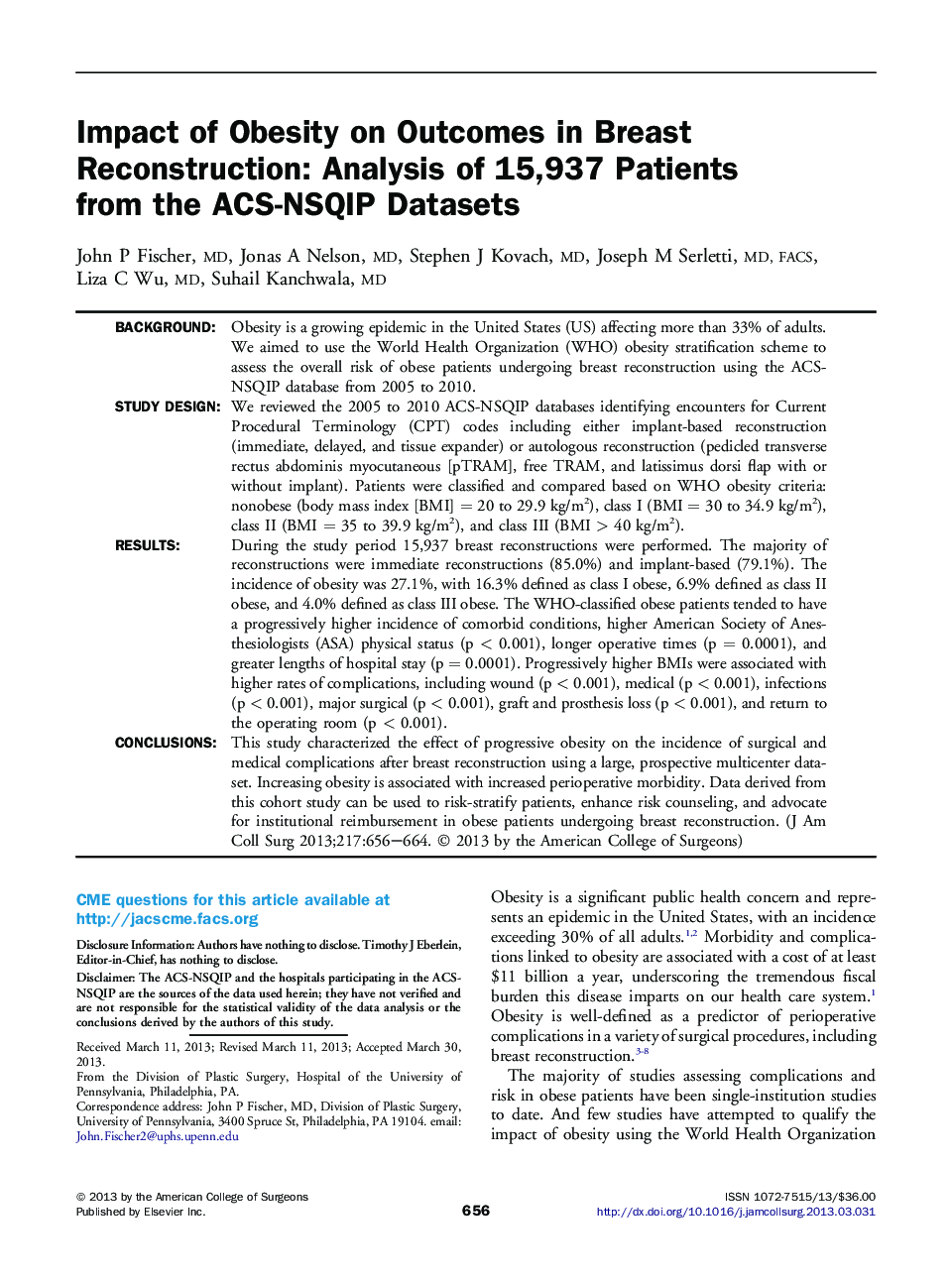| کد مقاله | کد نشریه | سال انتشار | مقاله انگلیسی | نسخه تمام متن |
|---|---|---|---|---|
| 4291867 | 1612241 | 2013 | 9 صفحه PDF | دانلود رایگان |

BackgroundObesity is a growing epidemic in the United States (US) affecting more than 33% of adults. We aimed to use the World Health Organization (WHO) obesity stratification scheme to assess the overall risk of obese patients undergoing breast reconstruction using the ACS-NSQIP database from 2005 to 2010.Study DesignWe reviewed the 2005 to 2010 ACS-NSQIP databases identifying encounters for Current Procedural Terminology (CPT) codes including either implant-based reconstruction (immediate, delayed, and tissue expander) or autologous reconstruction (pedicled transverse rectus abdominis myocutaneous [pTRAM], free TRAM, and latissimus dorsi flap with or without implant). Patients were classified and compared based on WHO obesity criteria: nonobese (body mass index [BMI] = 20 to 29.9 kg/m2), class I (BMI = 30 to 34.9 kg/m2), class II (BMI = 35 to 39.9 kg/m2), and class III (BMI > 40 kg/m2).ResultsDuring the study period 15,937 breast reconstructions were performed. The majority of reconstructions were immediate reconstructions (85.0%) and implant-based (79.1%). The incidence of obesity was 27.1%, with 16.3% defined as class I obese, 6.9% defined as class II obese, and 4.0% defined as class III obese. The WHO-classified obese patients tended to have a progressively higher incidence of comorbid conditions, higher American Society of Anesthesiologists (ASA) physical status (p < 0.001), longer operative times (p = 0.0001), and greater lengths of hospital stay (p = 0.0001). Progressively higher BMIs were associated with higher rates of complications, including wound (p < 0.001), medical (p < 0.001), infections (p < 0.001), major surgical (p < 0.001), graft and prosthesis loss (p < 0.001), and return to the operating room (p < 0.001).ConclusionsThis study characterized the effect of progressive obesity on the incidence of surgical and medical complications after breast reconstruction using a large, prospective multicenter dataset. Increasing obesity is associated with increased perioperative morbidity. Data derived from this cohort study can be used to risk-stratify patients, enhance risk counseling, and advocate for institutional reimbursement in obese patients undergoing breast reconstruction.
Journal: Journal of the American College of Surgeons - Volume 217, Issue 4, October 2013, Pages 656–664